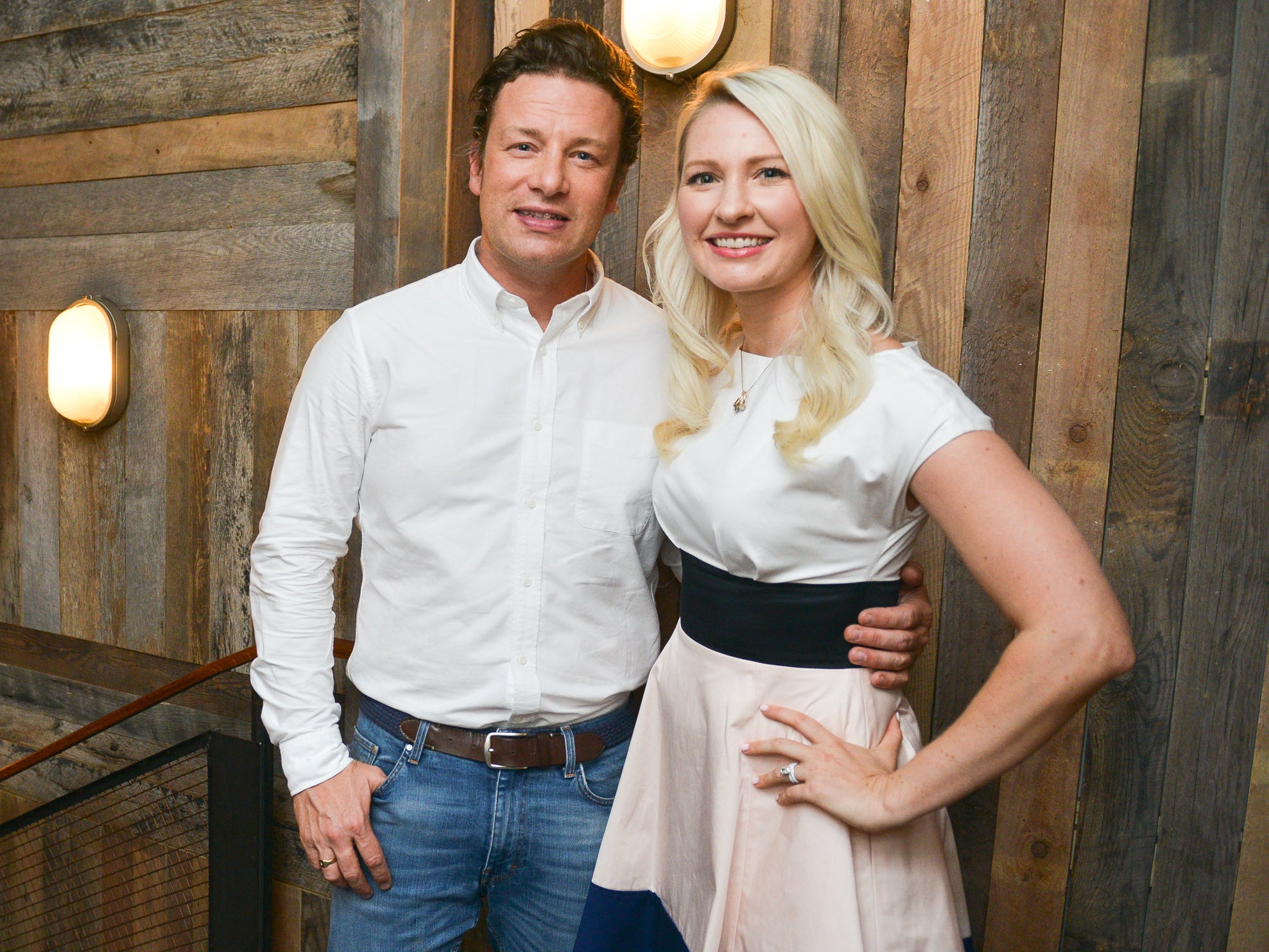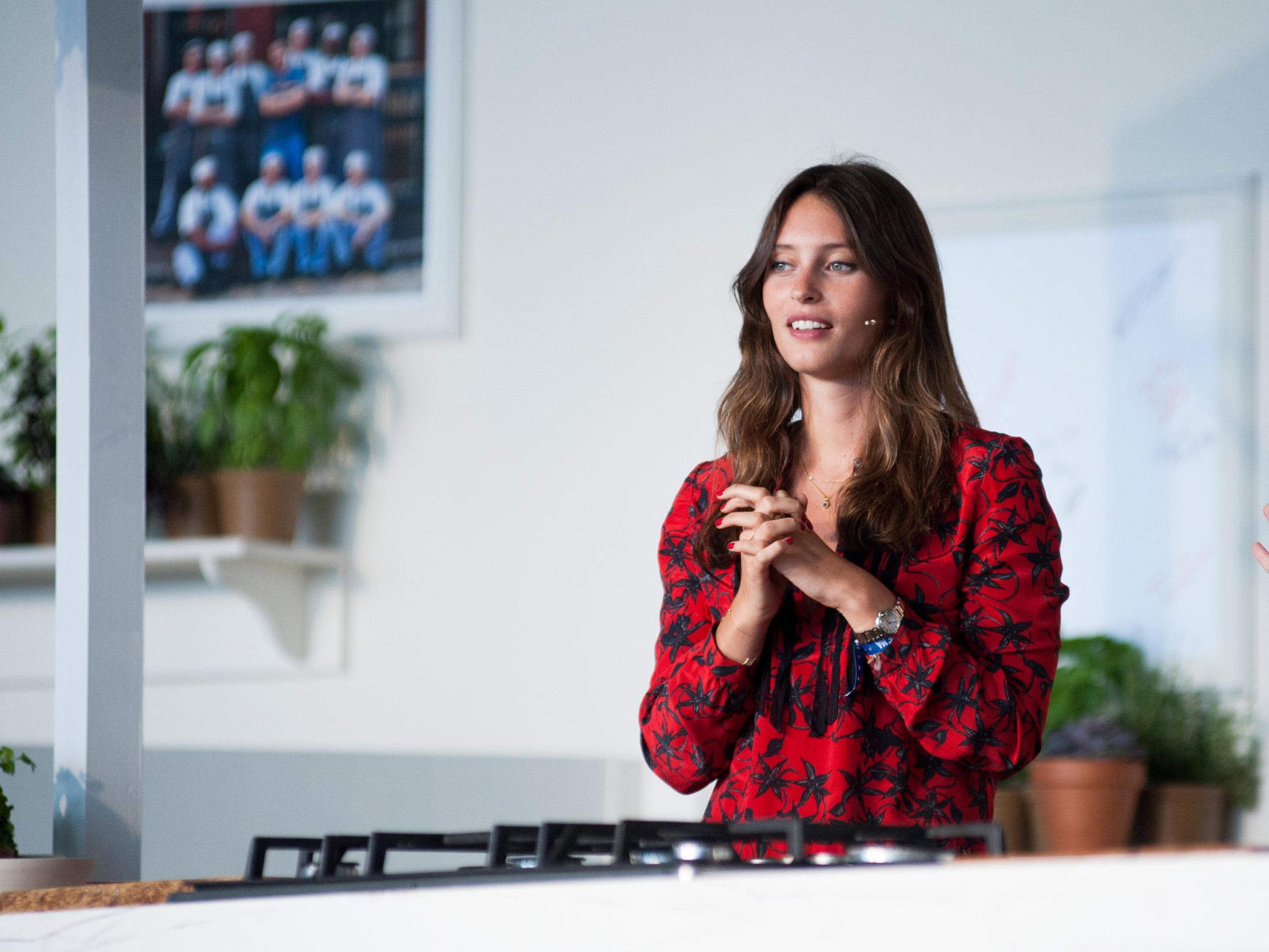The dark side of veganism: How the diet can be a cover for disordered eating
The rising trend of veganism has uncovered some home truths – Jessica Brown investigates how hidden behind the perfectly Instagrammable meals lies another form of control for those suffering from eating disorders

Your support helps us to tell the story
From reproductive rights to climate change to Big Tech, The Independent is on the ground when the story is developing. Whether it's investigating the financials of Elon Musk's pro-Trump PAC or producing our latest documentary, 'The A Word', which shines a light on the American women fighting for reproductive rights, we know how important it is to parse out the facts from the messaging.
At such a critical moment in US history, we need reporters on the ground. Your donation allows us to keep sending journalists to speak to both sides of the story.
The Independent is trusted by Americans across the entire political spectrum. And unlike many other quality news outlets, we choose not to lock Americans out of our reporting and analysis with paywalls. We believe quality journalism should be available to everyone, paid for by those who can afford it.
Your support makes all the difference.In a perfect world, the rise in veganism comes solely from a place of compassion for animals and a personal responsibility towards sustainability and reducing carbon emissions. But in reality, veganism is also being used as a cover for disordered eating.
When 21-year-old music student Katie Alice Macdonald was an inpatient for anorexia, she wasn’t allowed to follow a vegan diet. But when she became an outpatient, Macdonald used veganism as an excuse to control her eating.
“I think being vegan made it easier for me to not comply in treatment because I stated that I didn’t want to be made to have animal produce, and restoring weight on a plant-based diet can be problematic for some dieticians, so I do think I used it as an excuse,” she says.
Macdonald, who has been vegan for three of the eight years she’s had anorexia for, says veganism often gave her an easy excuse to restrict unhealthy foods.
“Veganism can definitely mask a very restrictive diet, and it makes it so much easier to hide eating disorder symptoms, especially as veganism is seen as such a green, plant-based lifestyle,” she says.
“It allowed me to cut out lots of stereotypically fatty foods like dairy and chocolate without anyone really seeing it as a bad thing.”
There are a number of studies that have found disordered eating among vegetarians, however, while the number of vegans is rising year on year – it’s estimated that up to 3.5 million people in the UK are vegan. The trend has come from the fringes relatively recently, and is therefore a much less researched area.
A study in 2013, for example, looked at the relationship between vegetarianism and eating disorders among women, and found that about half of those with anorexia reported eating some form of vegetarian diet, compared to around 2 per cent of the UK population.
More than two thirds of participants with a history of eating disorders and vegetarianism agreed that there was a relation between vegetarianism and their eating disorder, and many said being vegetarian helped them lose weight, maintain their eating disorder and provide another way to cut calories and feel in control.
Abbey Sharp, registered dietician and food blogger, lived on a diet of just boiled broccoli, dry kale and baked chicken breasts in her attempts to eat healthily, and lost 50lbs in one year.
Sharp’s career helped her overcome her disordered eating, when she realised how much being a food blogger clashed with her endless clean-eating rules. And as she observes veganism rise through the ranks and gain a trendy status, she is concerned for those susceptible to disordered eating.

“While there are a lot of fantastic reasons to choose to eat more plant-based, I have seen it often lead down a disorderly road,” she says.
“Veganism can be incredibly healthy, so I don’t want to dismiss the benefits of plant-based food. But it’s a very challenging diet to adhere to and often can be isolating and overly restrictive.
“When a specific way of eating gets in the way of us enjoying social events, or when we use our ‘lifestyle’ as a way to eat less or fewer foods we deem ‘unclean’ or ‘unhealthy’, we dip down that slippery slope.
“Orthorexia is simply taking healthy eating ‘rules’ to an extreme. While my orthorexia was largely based around a fear of sugar, for others that could be fat, gluten, or in this case, animal products.
“Veganism is an extreme diet, and without a very clear, moderate head space, it can often lead to orthorexia or other eating disorders.” Some argue veganism is a lifestyle, not a diet, but Sharp disagrees that there is a distinction.
“Veganism requires a set of very strict rules, and setting up any rules around what you eat is a diet. At their least problematic diets fail. But often, diets also often lead to disordered eating.”
In one study earlier this year, researchers from the University of Dusseldorf looked at orthorexic and restrained eating behaviours among vegans, vegetarians and those on a diet.
Orthorexia, a term coined in 1997, is used to describe an unhealthy obsession with eating healthily, however it isn’t an officially recognised eating disorder in the Diagnostic and Statistical Manual of Mental Disorders.
The researchers found that vegans and vegetarians scored higher in orthorexic eating behaviours than those who eat red meat.
Lead author Friederike Barthels says the research was conducted as a response to increasing anecdotal evidence of a connection between orthorexia and veganism and vegetarianism. However, he clarified that the levels of these behaviours observed among participants wasn’t high enough to be categorised as at risk of orthorexia.

The study couldn’t conclude where this link may come from, but Barthels says one explanation could be because veganism is associated with health. “It’s quite likely that people with higher levels of orthorexia omit meat from their diet,” he says.
“Nonetheless, unpublished data from a previous study revealed that only vegans who omit foods of animal origin due to health reasons display higher levels of orthorexia. Those who go vegan due to ethical reasons did not display elevated levels of orthorexia, so the underlying motives are crucial.”
He adds that veganism could both attract those with orthorexic behaviours, and play a part in causing them. “One might drift from a vegan or vegetarian diet into an eating disorder, but I think that a vegan/vegetarian or orthorexic way of eating might also be a coping strategy for people suffering from a severe eating disorder,” he says.
“For these individuals, eating is such a problematic issue that any diet allowing at least some foods is better than starving.”
Laura Dennison, founder of no-nonsense healthy eating resource Not Plant Based, used veganism to hide multiple eating disorders, and argues one of the biggest risks to disordered eating within the vegan community is some of its bloggers. “I went vegan because I wanted to lose weight, and it became a shield for a lot of other problems I had with food,” she says.
“I had multiple eating disorders for years and I thought that to cure myself I needed a permanent lifestyle where I could remain thin, and in my eyes, be healthy. But I was actually eating junk food, and the same things every day, I was able to say ‘I’m vegan’, so no one would question what I was eating and the restrictions I’d put myself on.”
She warns that some food bloggers, who are increasingly influential in telling people how to go vegan, often have disordered eating themselves. “A lot of people who have plant-based brands and earn a lot of money that way have eating problems, so it’s unethical for them to say that if you eat like me you’ll be healthy, when actually they have an eating disorder they’re disguising.
“The problem is they get so deep into their brand they feel like they can’t be honest, in case people feel deceived. It’s difficult with the rise in blogging, and this is where people find vegan-eating plans.”
Dennison says this lack of reliable information can abet people to cut out foods. “It’s difficult when you can’t afford to see a nutritionist or dietician and if you’re feeling unwell you can’t tell if it’s something in your diet or not. It’s really hard to find the correct information. This means a lot of people scare themselves out of eating certain foods.
“People convince themselves of tolerances and restrict foods to mask disordered eating. Dairy is a massive food group and with veganism you have an excuse not to eat it, and friends won’t question it.” She says bloggers, and those who worry their eating is disordered, must try to be honest with themselves and their motivations.
“I hated being vegan and restricting,” Dennison says. “I love cheese and the thought of living without it was really depressing.
“Veganism can be brilliant, environmentally and ethically, but you have to question why you want to become vegan.”
Renee McGregor, dietician for athletes and those with orthorexia, says quite a few of her clients with orthorexia or anorexia are also vegan, and become so as a first step towards a disorder.
“A lot of people start with a flirtation with veganism, because it’s trendy and it provides an easy opportunity to fully remove food groups, and makes it legitimate. The eating disorder mind is very manipulative because it’s really unwell, it’s not a healthy brain that thinks rationally, so it’s always looking for validation to maintain disordered thoughts and behaviours.
But bloggers promote veganism alongside other restrictions, such as Deliciously Ella, who was gluten-free and mostly sugar-free, as well as vegan. “If you start to follow that principle, you’re creating food rules that are easy to follow.”
McGregor says she is concerned about how much false information is online among vegan bloggers, because anyone with disordered eating who wants to find validation for their disordered thoughts will find it. She says some of her clients will compare themselves to unrealistic images online.
“I know a lot of health bloggers have eating disorders. Social media isn’t real but we all believe it is.”
But some bloggers argue it’s not their responsibility. Adele Halsall, author of vegan food blog Everything’s Peachy, says that while she thinks bloggers have a responsibility for their content, and should back up any health claims with scientific evidence, readers should take their views with a pinch of salt.
“Blogging is an anecdotal platform by nature. If somebody is claiming that a vegan diet made them feel amazing, that might genuinely be their opinion, and there’s no other way to verify that,” she says.
“That’s why it’s also the responsibility of readers to do a little more research on their own, and understand that bloggers are often just sharing their own story and point of view. If I blindly follow the advice of one blogger, and it doesn’t work for me, then I would be to blame for not having done more of my own research, or maybe my body just works differently to theirs.”

Halsall argues that veganism can actually help people to overcome disordered eating. “I’ve heard stories of vegan diets helping people overcome disordered eating. A vegan diet promotes an abundance of plant-based foods, with the only ‘rule’ being not to hurt animals.
Once people make that connection between animals and our food and eat more compassionately, it can remove a lot of their guilt around food and they no longer feel the need to restrict themselves.”
Gena Hamshaw, author of The Full Helping blog and a dietetics student in NYC, says veganism didn’t cure her anorexia, but it helped. “It gave me a new method of cooking to explore, which encouraged me to approach my meals with a sense of creativity and playfulness.
“Any type of cooking might have been helpful in the same way, but veganism stoked the sense of inspiration and excitement about food that had been deadened by anorexia,” she says.
Veganism also helped Hamshaw see mealtimes as a way to be compassionate, she says. “Eating had always been so fraught and wrapped in shame. Over time, this idea of self-nourishment as a form of activism helped me to break free of the obsession and isolation – rules, secrets, hiding – that had characterised my disorder.”
She says while she was still recovering and controlling her eating, she didn’t set a great example to others online. “I shared a perspective on food that wasn’t always the best example to set for others who were curious about plant-based diets.”
Now, Hamshaw says she feels a responsibility to share evidence-based content. “I also try to avoid restrictive and triggering language when I can, and I steer clear of restrictive food fads that focus on weight loss or body manipulation, or any messaging that portrays food as being shameful.”
She says there will be more people in her situation, interested in veganism because the boundaries make them feel safe, but for whom the diet can become part of their recovery.
“I don’t pretend that having something to be selective about didn’t probably appeal to the part of me that’s rule-oriented, at least at first. But the more time I spent within the ethics of the lifestyle, the more my veganism became animated by a sense of purpose and meaning that dwarfed my need to seek control through food.”
Join our commenting forum
Join thought-provoking conversations, follow other Independent readers and see their replies
Comments